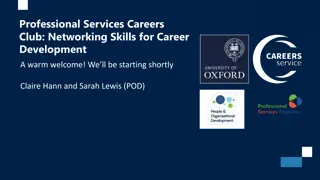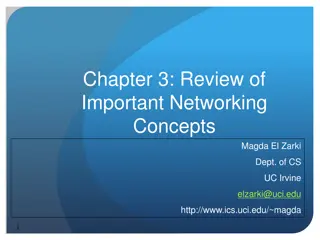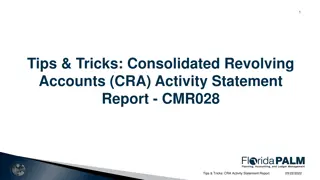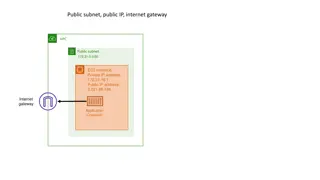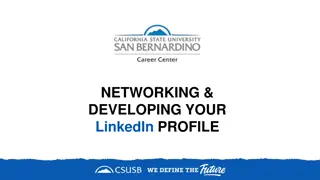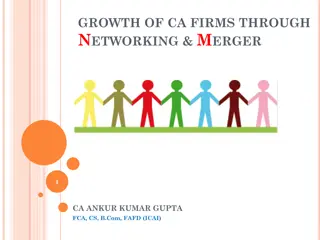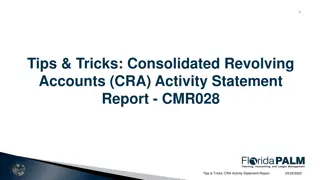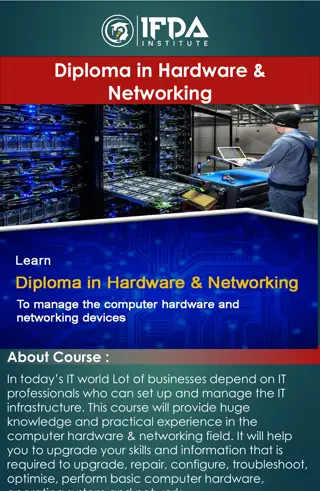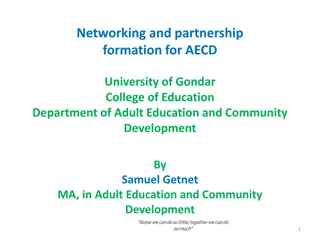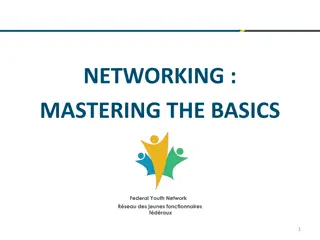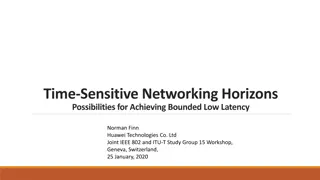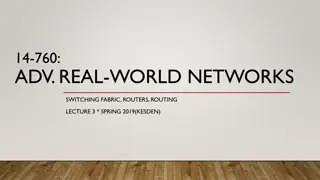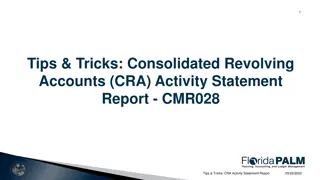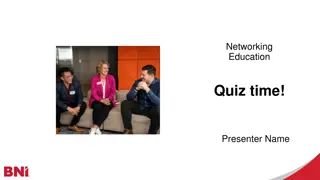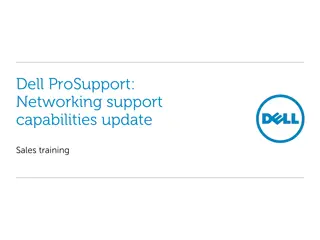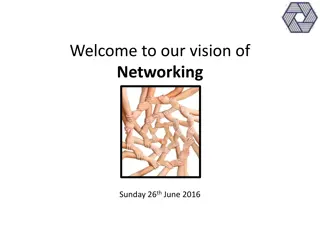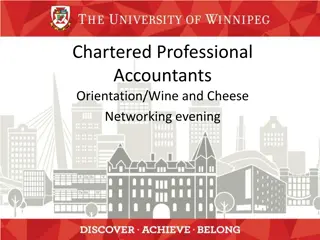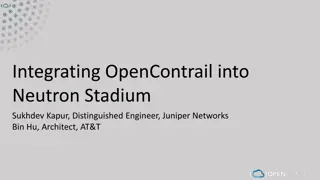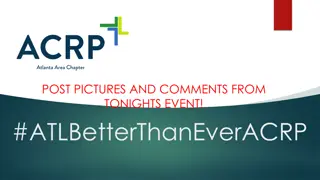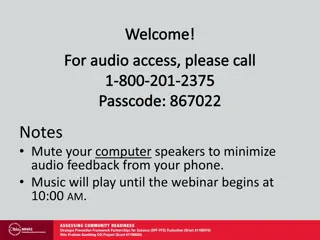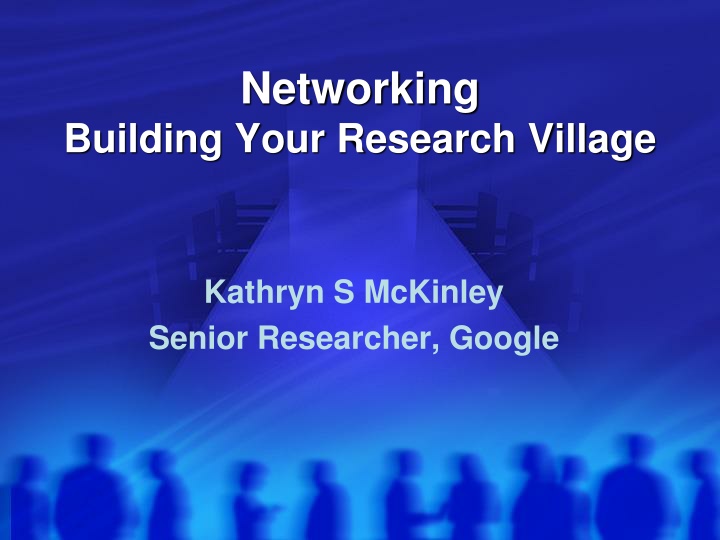
Building Successful Networking in Research Communities
Discover the importance of networking in building lasting professional relationships within research communities. Learn from expert Kathryn S. McKinley as she shares valuable insights and tips on effective networking strategies. Explore the benefits of networking for career growth, idea sharing, collaborations, and opportunities. Start creating your own research village today!
Download Presentation

Please find below an Image/Link to download the presentation.
The content on the website is provided AS IS for your information and personal use only. It may not be sold, licensed, or shared on other websites without obtaining consent from the author. If you encounter any issues during the download, it is possible that the publisher has removed the file from their server.
You are allowed to download the files provided on this website for personal or commercial use, subject to the condition that they are used lawfully. All files are the property of their respective owners.
The content on the website is provided AS IS for your information and personal use only. It may not be sold, licensed, or shared on other websites without obtaining consent from the author.
E N D
Presentation Transcript
Networking Building Your Research Village Kathryn S McKinley Senior Researcher, Google
Kathryn McKinley Research Congressional Testimony Mentors Family
Networking is Building and sustaining professional relationships Participating in a research community
Networking is not Using people or a substitute for quality research
Career Relationships Susan Eggers Me: talk at UW Susan: Interview at UW (no offer!) Susan: ASPLOS PC member Me: proposal advice Susan: ASPLOS Program Chair Me (UMass): tenure letter Susan: talk advice Random people Me, rejection Lesson: start with a complement & question/topic
But I am horrible at small talk! You have CS in common Networking is not genetic It is a research skill Practice Meet people Learn Go places Volunteer!
Networking Makes you known Makes your work known Source of new research ideas & different slants on old ideas Feedback on your research New collaborations Letters of recommendation Professional opportunities
It takes a village And you get to create your own.
Creating your own village All villages need elders All villages need regular Joes All villages need diversity Learn different strokes from different folks All villages need uniformity Similar folks have similar issues John S. Davis, IBM, 2003
Networking up & down Go to talks, go to conferences, Introduce yourself to Established Researchers Researchers in all areas! Researchers junior to you Peers!
Networking across & down Chuck Koebel Post doc at Rice NSF program manager Doug Burger Interviewed @Umass Hired me @UT Hired me @ Microsoft
Conference networking Prepare a research talk (write it down, practice) Elevator talk (1 & 3 minute versions) Why is it an interesting problem? Why is it important? Why is your solution unique? Prepare Who will be there? Who do you want to meet? What do you want to ask them? Read their papers. Take notes! Who you met, plan next steps
At the Conference Use your EQ You all have CS in common Find people you connect with One conversation is not enough Reconnect Be open and ask questions Move on to the next conversation Don t only hang around with your friends Don t interrupt private conversations
After the conference Follow up! Read their work! Send comments Send pointers to your related papers Share software and workloads Do joint work together Invite them to give a talk Ask to give a talk there (as appropriate)
Informal networking Serendipity happens: Talk to people you meet by chance. Talk to people you like. Convey excitement about your research and theirs. Talk to people about their lives as well as their work. Ask questions & listen!
Homework Practice today with your peers & beyond Meet at least 10 people in your institution this month Introduce yourself with handshake (caveat), smile, and your name Write down their names Network Forward network your network Follow-up with email, Linked-In, or Facebook Network Forward Make connections You should meet Hermione Granger from Hogworts
10 Minute Speed Dating 1 minute Quick Intros Shake hands, eye contact, & smile My name is Kathryn Happy to meet you, Jane Write down their name! Listener: Ask a question Respondent: Answer the question! Listener listens actively, eye contact, notes are OK Listener mirrors what she has heard & responds directly, relating to the answer Swap Roles. Lather, Rinse, Repeat!.
What to talk about? What is your research area? What attracts you to this subject area? What research problem(s) are you working on right now? What is your greatest (professional or personal) challenge right now? What is your next step in your career? What do you hope to get out of this meeting? What was the most important lesson you learned from your advisor? What do you enjoy doing when you re not doing CS? What are you passionate about?
Activities & Resources Arrange networking events at your home institution!
Resources www.cra-w.org CRA-W Career Mentoring Workshops, Workshop reports and transcripts, From a summer internship to a permanent position by Keith Farkus, DEC WRL Finding real world problems by Dirk Grunwald, U Colorado Networking for your students by Ken Kennedy, Rice Go outside your department by Jan Cuny, U Oregon Developing business contacts by Maria Klawe, UBC Networking at NSF by Caroline Wardle, NSF Populating a start-up by Dave Ditzel, Transmeta The ONR program director by Susan Eggers, UW
Acknowledgements Thanks for sharing their presentations Jan Cuny, NSF Susan Eggers, University of Washington John Davis, IBM Mary Jean Harrold, Georgia Tech Valerie Taylor, Texas A&M Who did they thank? Susan Owicki, Joan Feigenbaum, Judy Goldsmith, Naomi Nishimura, David Johnson, Peter Shor, David Applegate, Richard Beigel

